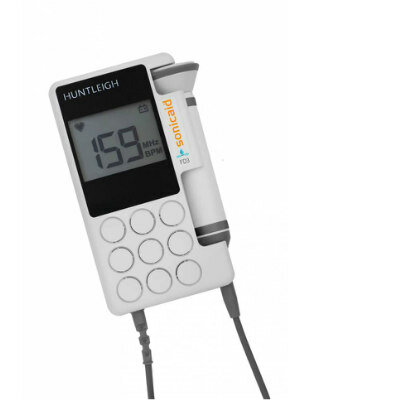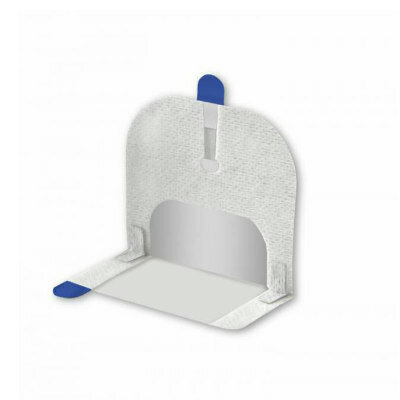FDA Clears First-Ever AI Mammography Triage Software that Supports both 3D and 2D Mammography
|
By MedImaging International staff writers Posted on 21 Apr 2021 |

Illustration
The US Food and Drug Administration has cleared the first-ever artificial intelligence (AI) mammography triage software that supports both 3D and 2D mammography.
DeepHealth (Cambridge, MA, USA), a subsidiary of RadNet, Inc. (Los Angeles, CA, USA), has received FDA clearance for Saige-Q, its mammography triage software. Saige-Q is a screening worklist prioritization tool that enables radiologists to more effectively manage their mammography cases with the use of AI. DeepHealth’s powerful new AI technology automatically identifies suspicious screening exams that may need prioritized attention, allowing radiologists to optimize their workflow for efficiency and effectiveness.
“Saige-Q is built using our core artificial intelligence algorithms, described in a recent article in Nature Medicine,” said Bill Lotter, Ph.D., CTO, and co-founder of DeepHealth. “As the first FDA-cleared mammography triage product that supports 3D mammography in addition to 2D mammography, Saige-Q demonstrates high performance that is maintained across different breast densities and lesion types.”
“As our first FDA-cleared product, Saige-Q is a major milestone for our team. It represents the first step of many towards delivering the best care possible for patients through rigorous science that clinicians and patients can trust,” said Gregory Sorensen, M.D., CEO, and co-founder of DeepHealth. “We have developed an advanced algorithm to support radiologists with the significant challenge of finding breast cancer as early as possible. Saige-Q empowers radiologists to optimize how and when they read cases marked by Saige-Q as suspicious or those not marked as suspicious, enhancing their ability to deliver the best care.”
“Receiving FDA clearance for our first mammography AI software algorithm is an important step in RadNet’s commitment to delivering the best quality of care for our patients,” added Dr. Howard Berger, President and Chief Executive Officer of RadNet. “With the almost two million mammography exams we perform annually in our markets, we will now begin to deploy this tool, enabling our mammographers to become more accurate and productive. The efficiency gains and accuracy should be further enhanced by a more advanced diagnostic algorithm we plan to submit to the FDA for its review by year end.”
“With the purchase of DeepHealth last year and the ongoing investments we are making in AI, we are dedicated to leading the transformation of our industry into utilizing machine learning to enhance patient outcomes, improve the productivity of radiologists and offer unique screening programs to health insurers which we believe will have a profound impact on population health and wellness,” Dr. Berger noted.
Related Links:
DeepHealth
RadNet, Inc.
DeepHealth (Cambridge, MA, USA), a subsidiary of RadNet, Inc. (Los Angeles, CA, USA), has received FDA clearance for Saige-Q, its mammography triage software. Saige-Q is a screening worklist prioritization tool that enables radiologists to more effectively manage their mammography cases with the use of AI. DeepHealth’s powerful new AI technology automatically identifies suspicious screening exams that may need prioritized attention, allowing radiologists to optimize their workflow for efficiency and effectiveness.
“Saige-Q is built using our core artificial intelligence algorithms, described in a recent article in Nature Medicine,” said Bill Lotter, Ph.D., CTO, and co-founder of DeepHealth. “As the first FDA-cleared mammography triage product that supports 3D mammography in addition to 2D mammography, Saige-Q demonstrates high performance that is maintained across different breast densities and lesion types.”
“As our first FDA-cleared product, Saige-Q is a major milestone for our team. It represents the first step of many towards delivering the best care possible for patients through rigorous science that clinicians and patients can trust,” said Gregory Sorensen, M.D., CEO, and co-founder of DeepHealth. “We have developed an advanced algorithm to support radiologists with the significant challenge of finding breast cancer as early as possible. Saige-Q empowers radiologists to optimize how and when they read cases marked by Saige-Q as suspicious or those not marked as suspicious, enhancing their ability to deliver the best care.”
“Receiving FDA clearance for our first mammography AI software algorithm is an important step in RadNet’s commitment to delivering the best quality of care for our patients,” added Dr. Howard Berger, President and Chief Executive Officer of RadNet. “With the almost two million mammography exams we perform annually in our markets, we will now begin to deploy this tool, enabling our mammographers to become more accurate and productive. The efficiency gains and accuracy should be further enhanced by a more advanced diagnostic algorithm we plan to submit to the FDA for its review by year end.”
“With the purchase of DeepHealth last year and the ongoing investments we are making in AI, we are dedicated to leading the transformation of our industry into utilizing machine learning to enhance patient outcomes, improve the productivity of radiologists and offer unique screening programs to health insurers which we believe will have a profound impact on population health and wellness,” Dr. Berger noted.
Related Links:
DeepHealth
RadNet, Inc.
Latest Industry News News
- Bayer and Google Partner on New AI Product for Radiologists
- Samsung and Bracco Enter Into New Diagnostic Ultrasound Technology Agreement
- IBA Acquires Radcal to Expand Medical Imaging Quality Assurance Offering
- International Societies Suggest Key Considerations for AI Radiology Tools
- Samsung's X-Ray Devices to Be Powered by Lunit AI Solutions for Advanced Chest Screening
- Canon Medical and Olympus Collaborate on Endoscopic Ultrasound Systems
- GE HealthCare Acquires AI Imaging Analysis Company MIM Software
- First Ever International Criteria Lays Foundation for Improved Diagnostic Imaging of Brain Tumors
- RSNA Unveils 10 Most Cited Radiology Studies of 2023
- RSNA 2023 Technical Exhibits to Offer Innovations in AI, 3D Printing and More
- AI Medical Imaging Products to Increase Five-Fold by 2035, Finds Study
- RSNA 2023 Technical Exhibits to Highlight Latest Medical Imaging Innovations
- AI-Powered Technologies to Aid Interpretation of X-Ray and MRI Images for Improved Disease Diagnosis
- Hologic and Bayer Partner to Improve Mammography Imaging
- Global Fixed and Mobile C-Arms Market Driven by Increasing Surgical Procedures
- Global Contrast Enhanced Ultrasound Market Driven by Demand for Early Detection of Chronic Diseases
Channels
Radiography
view channel
Novel Breast Imaging System Proves As Effective As Mammography
Breast cancer remains the most frequently diagnosed cancer among women. It is projected that one in eight women will be diagnosed with breast cancer during her lifetime, and one in 42 women who turn 50... Read more
AI Assistance Improves Breast-Cancer Screening by Reducing False Positives
Radiologists typically detect one case of cancer for every 200 mammograms reviewed. However, these evaluations often result in false positives, leading to unnecessary patient recalls for additional testing,... Read moreMRI
view channel
PET/MRI Improves Diagnostic Accuracy for Prostate Cancer Patients
The Prostate Imaging Reporting and Data System (PI-RADS) is a five-point scale to assess potential prostate cancer in MR images. PI-RADS category 3 which offers an unclear suggestion of clinically significant... Read more
Next Generation MR-Guided Focused Ultrasound Ushers In Future of Incisionless Neurosurgery
Essential tremor, often called familial, idiopathic, or benign tremor, leads to uncontrollable shaking that significantly affects a person’s life. When traditional medications do not alleviate symptoms,... Read more
Two-Part MRI Scan Detects Prostate Cancer More Quickly without Compromising Diagnostic Quality
Prostate cancer ranks as the most prevalent cancer among men. Over the last decade, the introduction of MRI scans has significantly transformed the diagnosis process, marking the most substantial advancement... Read moreUltrasound
view channel
Deep Learning Advances Super-Resolution Ultrasound Imaging
Ultrasound localization microscopy (ULM) is an advanced imaging technique that offers high-resolution visualization of microvascular structures. It employs microbubbles, FDA-approved contrast agents, injected... Read more
Novel Ultrasound-Launched Targeted Nanoparticle Eliminates Biofilm and Bacterial Infection
Biofilms, formed by bacteria aggregating into dense communities for protection against harsh environmental conditions, are a significant contributor to various infectious diseases. Biofilms frequently... Read moreNuclear Medicine
view channel
New SPECT/CT Technique Could Change Imaging Practices and Increase Patient Access
The development of lead-212 (212Pb)-PSMA–based targeted alpha therapy (TAT) is garnering significant interest in treating patients with metastatic castration-resistant prostate cancer. The imaging of 212Pb,... Read moreNew Radiotheranostic System Detects and Treats Ovarian Cancer Noninvasively
Ovarian cancer is the most lethal gynecological cancer, with less than a 30% five-year survival rate for those diagnosed in late stages. Despite surgery and platinum-based chemotherapy being the standard... Read more
AI System Automatically and Reliably Detects Cardiac Amyloidosis Using Scintigraphy Imaging
Cardiac amyloidosis, a condition characterized by the buildup of abnormal protein deposits (amyloids) in the heart muscle, severely affects heart function and can lead to heart failure or death without... Read moreGeneral/Advanced Imaging
view channel
New AI Method Captures Uncertainty in Medical Images
In the field of biomedicine, segmentation is the process of annotating pixels from an important structure in medical images, such as organs or cells. Artificial Intelligence (AI) models are utilized to... Read more.jpg)
CT Coronary Angiography Reduces Need for Invasive Tests to Diagnose Coronary Artery Disease
Coronary artery disease (CAD), one of the leading causes of death worldwide, involves the narrowing of coronary arteries due to atherosclerosis, resulting in insufficient blood flow to the heart muscle.... Read more
Novel Blood Test Could Reduce Need for PET Imaging of Patients with Alzheimer’s
Alzheimer's disease (AD), a condition marked by cognitive decline and the presence of beta-amyloid (Aβ) plaques and neurofibrillary tangles in the brain, poses diagnostic challenges. Amyloid positron emission... Read more.jpg)
CT-Based Deep Learning Algorithm Accurately Differentiates Benign From Malignant Vertebral Fractures
The rise in the aging population is expected to result in a corresponding increase in the prevalence of vertebral fractures which can cause back pain or neurologic compromise, leading to impaired function... Read moreImaging IT
view channel
New Google Cloud Medical Imaging Suite Makes Imaging Healthcare Data More Accessible
Medical imaging is a critical tool used to diagnose patients, and there are billions of medical images scanned globally each year. Imaging data accounts for about 90% of all healthcare data1 and, until... Read more


















